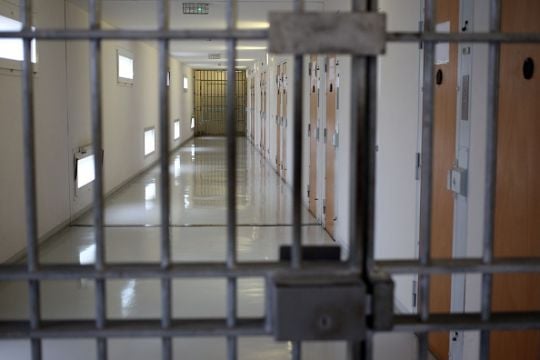A driver who was high on cannabis when he led gardaí on a 35-minute chase has failed to convince the Court of Appeal of the "very radical proposition" that he should not have been allowed to represent himself at trial.
The crash caused the death of his 20-year-old passenger, who was thrown from the vehicle which split in two due to the impact.
Lawyers for Michael Collins (49) had told the appeal hearing that a family member called it "delusional" that the defendant could represent himself.
Collins was jailed for 14 years at Trim Circuit Court in July 2019 for causing the crash, which killed Jillian Thornton seven years ago.
Following a 13-day trial, Collins, of St Finian’s Park, Drogheda, Co Louth, was found guilty of dangerous driving causing the death of Ms Thornton on May 27th, 2016, at Waterside Great, Duleek, Co Meath.
Collins defended himself after sacking his legal team at the start of the trial and was also convicted on two charges of endangerment, 12 charges of dangerous driving and of driving under the influence of an intoxicant, cannabis, on the same date.
Judge Martina Baxter heard that Collins was on his way to a music festival in Mullingar on the night with the victim and a friend, Alannah Byrne, who survived the crash.
Ms Thornton was killed when she was thrown from the back seat of the defendant’s car, which was split in two when it collided with another car near Ballymagarvey on the N2 after a 35-minute garda pursuit.
Appeal
In dismissing the appeal on Tuesday, Mr Justice Patrick McCarthy said the ability to represent oneself at trial was a constitutional right in Irish law which had to be upheld.
Mr Justice McCarthy that an inquiry into whether Collins was capable of defending himself had been carried out, and the trial judge had encouraged Collins to retain legal representation for the purpose of trial.
Mr Justice McCarthy pointed out that Collins had also been medically assessed with regard to his fitness to plead and that he had been found to be capable of doing so.
Mr Justice McCarthy said the right of a party to be heard without legal representation was a personal right, and that only in very extreme circumstances could a judge refuse such an application, once it was handled with the accused's full knowledge and consent.
Mr Justice McCarthy said the appellant's legal team had quoted Portuguese law, where persons who applied to represent themselves had their applications rejected at the final appeals stage of the Portuguese system.
The judge said this position did not represent Irish law and there was no question of a breach of EU law by Ireland in allowing Collins to represent himself.
Mr Justice McCarthy said the court had rejected the submission that Collins "was not in a position to properly defend himself" and dismissed the appeal.
At a hearing of the Court of Appeal, Michael Lynn SC, for Collins, said his client should not have been permitted to conduct his own defence, submitting that Collins previously had episodes of paranoia and had attended a facility in Drogheda to address this.
Mr Lynn said Collins' trial was "not one in accordance with the law" because of the lack of legal representation for Collins, which raised "a difficult issue".
The barrister submitted that the trial was "not one functioning properly because that person is incapable of running a coherent defence".
'Incapable of making a rational decision'
Ms Justice Isobel Kennedy asked if Mr Lynn was submitting that a legal team should be forced on such defendants and was told "yes, in the interest of a fair trial".
Mr Justice Patrick McCarthy had said the proposition of forcing a legal team upon an individual would infringe on their right not to have lawyers and represent themselves.
Mr Lynn said the "adversarial nature" of the criminal trial meant that it must be a fair procedure to involve legal representation when this applied in the case of a person who "is incapable of making a rational decision".
The barrister said the trial judge also was faced with a scenario where it was considered whether the trial could proceed with Collins absent from the courtroom due to his behaviour. Mr Lynn said this course of action could have been possible if a legal team had been imposed on Collins.
"A person's right to represent themselves can be over-ridden in the public interest. The waiver of legal representation has to be voluntary and an informed choice. They have to intelligently elect to do so," Mr Lynn said.
"In this case, the judge was very, very concerned, and a family member called it "delusional" that he could represent himself. Of course, it wasn't an intelligent choice," Mr Lynn added.







